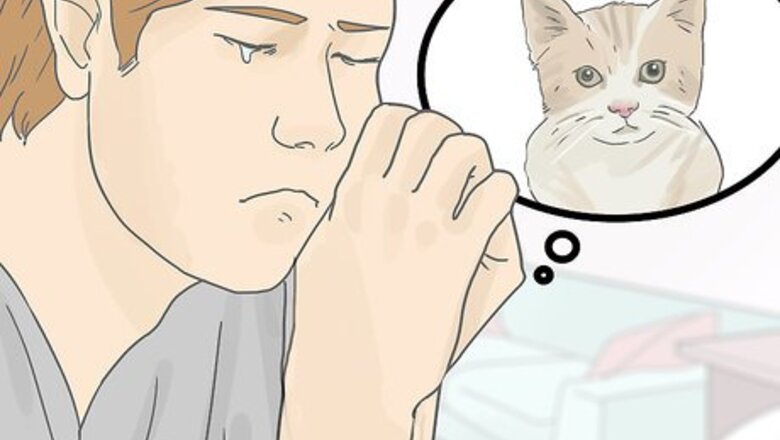
views
Grieving the Loss of Your Cat
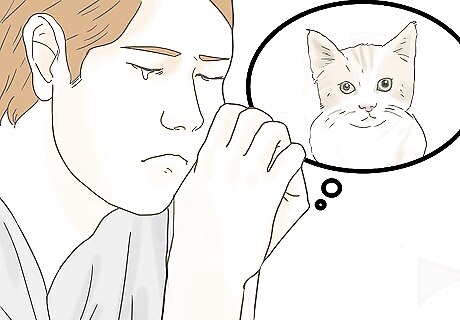
Do not ignore your pain. Ignoring your pain can actually make grief harder. In order to actually heal from the loss of your cat, you will need to actively face your pain and deal with it. If you feel sad and want to cry, then you should cry. Bottling up your emotions will likely extend the grieving process. Keeping your emotions to yourself can also trigger various problems in the future.

Take time to grieve. Losing a cat is like losing a member of the family. As a result, you will need to take time to allow yourself to grieve. Grieving may not just take a few days; it may take weeks or months, depending upon how you cope with it. Don't be afraid to cry sometimes or think about your cat a lot. It is okay to do that, as it is completely normal. For example, you may need to take a few days off of work to give yourself a mental break. You may also want some alone time to sort through your emotions and deal with your grief. Healing takes time and everyone will experience this process differently.
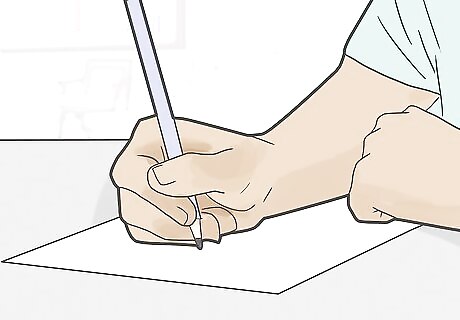
Write down your feelings. A great way to process your feelings and cope with your grief is through writing. Try writing a journal, poem, or short story to express your feelings. This can be a personal and therapeutic exercise. You do not need to share this with anyone, and it can help you really process your emotions.
Remembering Your Cat
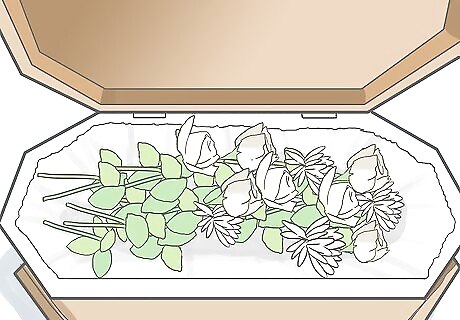
Hold a funeral for your cat. Rituals, like a funeral, can be helpful in coping with the death of a cat. For example, you could hold a small memorial service with close family members and bury your cat’s remains. This will allow you and your family to openly express your feelings regarding the loss of your pet cat. You will also be able to say your last goodbyes to your cat. Try and schedule a time with your family and maybe friends when they are available to hold a funeral for your cat.
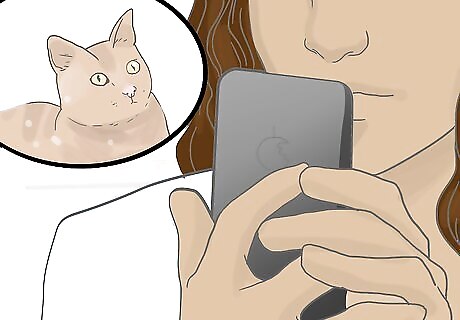
Look at pictures. After your cat dies, it can be therapeutic to look back at photographs from throughout your cat’s life. This is a nice way to remember your relationship with your cat and will bring back some positive memories. This will also help you to be able to focus on the good times with your cat, instead of the bad times. You may want to organize some of these photos into a scrapbook or memory box. This way you will be able to look through the book whenever you need and can easily reminisce about your cat. Framing pictures of your cat and hanging them around your house might also be a good idea, so that every time you glance at one of the pictures, it will remind you of your cat. However, this may not work for some people because they might get sad when they look at a picture. It depends on what you prefer.
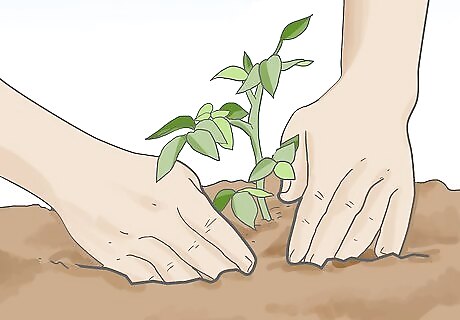
Create a memorial for your cat. It is also possible to create some sort of memorial for your cat. For example, you could plant a tree in your backyard to memorialize and celebrate your cat’s life. Place a small marker near the tree and mention that the tree is dedicated to your cat. Alternatively, you could donate money to a local animal shelter or sponsor an animal at your local zoo. You might also want to consider volunteering at your local shelter. That way, you will be able to spend time with the animals which can make you feel better.
Seeking Support
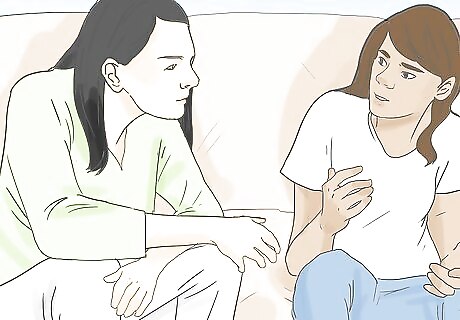
Reminisce with family and friends. A great way to cope with the loss of your cat is by reminiscing with close family and friends. Find people who understand what you are going through, and who will be sympathetic of your feelings. If you would prefer talking to someone else, feel free to find a therapist to talk to. Sharing stories and thinking of the positive times you shared with your cat can be healing and therapeutic. Remember that other members of your family, especially children, may also be mourning the loss of your cat. Include them as you seek closure.

Do not let others tell you how to feel. In your attempt to seek supportive friends and family members, you may come across some individuals who are not sympathetic to your loss. For instance, some people may not understand the close bond you had with your cat and say things like “get over it” or “move on, it’s only a cat.” It is your grief, so don't let anyone tell you when it is time to move on.
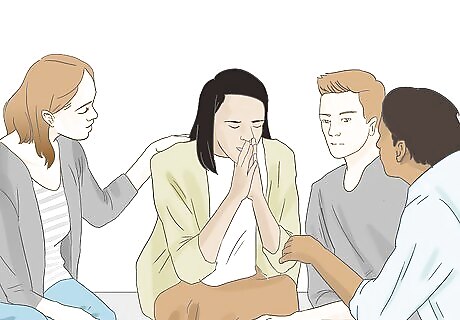
Find a support group. If you are unable to find a supportive figure among friends and family, you can search elsewhere for a support group. For example, you could read and contribute to online message boards, call a pet loss helpline, or join a pet loss support group. This will allow you to connect with people going through a similar experience. Search online to find a support group in your area.
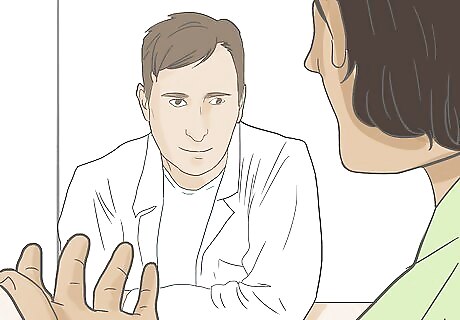
Seek professional help. If you find that your grief is persistent and is interfering with your ability to function in your daily life, you should speak with your doctor or a mental health care professional. They can help to guide you through the stages of grief and offer you emotional and mental support.
Engaging in Self-Care
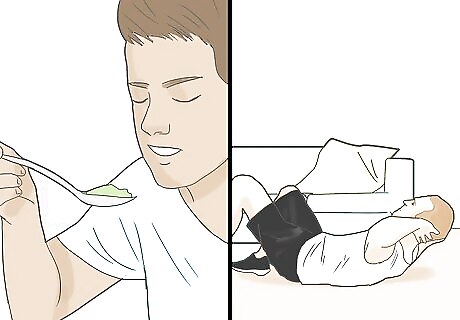
Eat healthy food and exercise. The loss of your cat is a stressful, sad, and emotionally draining event. As a result, your energy sources may feel depleted. It is very important that you take time to continue practicing self-care. For example, eat healthy food and exercise regularly in order to give yourself enough energy to meet your physical needs. Exercise can also improve your mood by releasing endorphins.

Engage in activities you enjoy. An excellent way to cope with your loss is by taking part in activities you enjoy. This can give your mind a mental break from grieving and will help you to relax. For example, you may want to go to a movie, spend some time with friends, or have a day at the spa. Alternatively, you could try some breathing exercises to help you calm your mind down and cope with the stress associated with losing your cat.
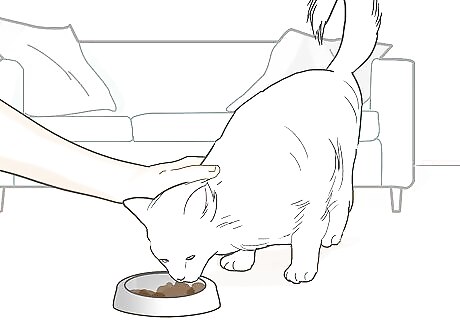
Maintain your daily routine for other pets. If you have other pets, they may also be experiencing grief and confusion as a result of the death of your cat. In order to continue giving your other pets proper care, you should do your best to maintain their daily routine. For example, continue to feed your other pets at the same time as normal. If you have surviving pets, especially another cat, remember that they have also suffered a loss. Cats especially can feel separation anxiety after losing a friend. Take these needs into consideration. You may also want to provide them with more attention and affection. This could mean playing more with them or providing them with additional cuddle time.
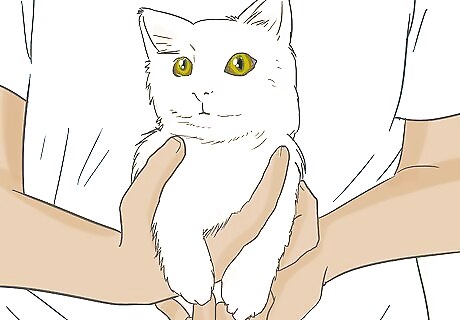
Consider getting another cat. When your cat dies they leave behind a void. You may feel the urge to rush out and replace your feline companion with a new cat. The decision concerning if, and when, to replace your cat is very personal and you should wait until you feel emotionally ready. As a general rule, it is best to wait until you have mourned the death of your cat and you are emotionally ready to welcome a new cat into your life. You may want to start by volunteering at a rescue shelter before actually adopting a new cat. This will help you know when you are ready. If you live on your own and your cat was an important source of companionship, you may want to get a new cat sooner.
















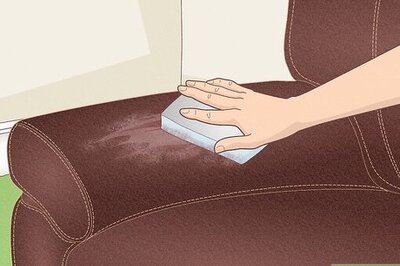
Comments
0 comment